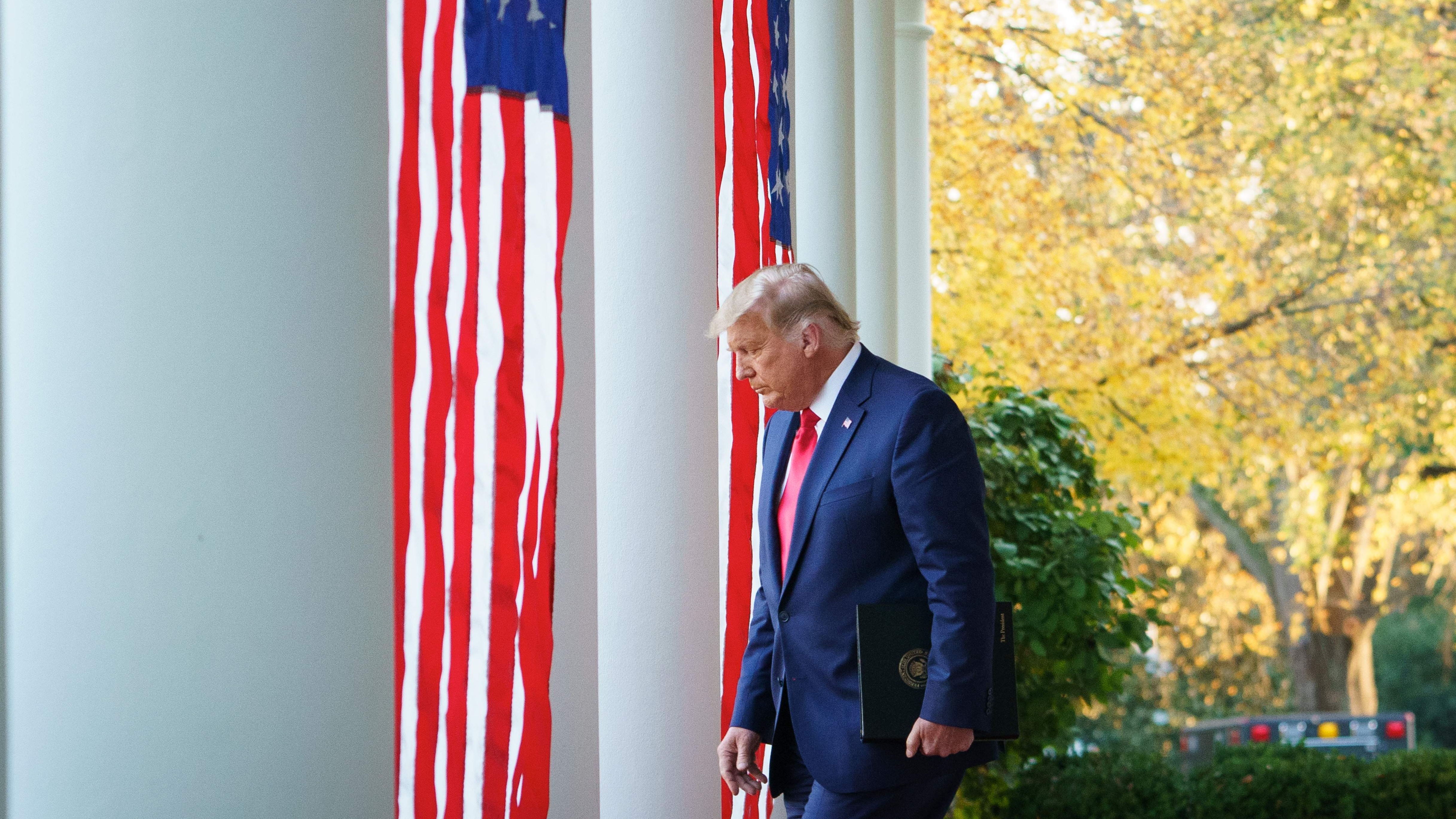US election: Republicans anxious about Donald Trump’s pre-exit ‘bucket list’
Concern growing after president scoped out Iranian sites for military action

A free daily email with the biggest news stories of the day – and the best features from TheWeek.com
You are now subscribed
Your newsletter sign-up was successful
Senior members of the Republican Party are growing increasingly worried about how Donald Trump will spend his final weeks in the Oval Office, as the outgoing president prepares a series of grand gestures to mark his impending departure.
Fears in the party that Trump is looking to build what The Times describes as a “hawkish legacy” have been fuelled by reports that he asked senior aides last week about his “options” for an attack an Iranian nuclear facility.
Trump is also expected to “enact hard-line policies sanctioning or restricting trade with more Chinese bodies and officials”, writes the newspaper’s diplomatic editor Catherine Philp.
The Week
Escape your echo chamber. Get the facts behind the news, plus analysis from multiple perspectives.

Sign up for The Week's Free Newsletters
From our morning news briefing to a weekly Good News Newsletter, get the best of The Week delivered directly to your inbox.
From our morning news briefing to a weekly Good News Newsletter, get the best of The Week delivered directly to your inbox.
But Beijing is prepared for any “final madness” by the president, according to the state-run Global Times.
“The Trump administration is at its weakest no matter how tough they appear to be,” says an editorial in the paper. “The world knows that the Trump administration is going to make a mess and its support has hit its lowest level at home and abroad.”
In another grand gesture, Trump has also announced the withdrawal of US troops in both Afghanistan and Iraq. Acting Defence Secretary Christopher Miller said yesterday that US troop numbers will be slashed from 4,500 to 2,500 in Afghanistan, and from 3,000 to 2,500 in Iraq, by 15 January.
Miller was appointed last week after Trump dismissed Mark Esper, who was opposed to the idea of reducing the US military presence in the two countries.
A free daily email with the biggest news stories of the day – and the best features from TheWeek.com
The plan has also drawn a “strong rebuke” from Mitch McConnell, the Senate majority leader, although “few other senior Republicans are daring to contradict the president in public”, says The Australian.
Speaking at a routine press briefing as the troop reductions were announced, McConnell said: “A precipitous drawdown in either Afghanistan or Iraq is a mistake.”
Trump’s bucket list schemes for his final months in office are likely to cause headaches for the incoming Joe Biden administration too. The president-elect has pledged to rejoin the Iran Nuclear Deal, negotiated by his former boss Barack Obama, but keeping that promise could prove trickier amid increased hostilities triggered by Trump.
Biden was yesterday briefed on national security by a series of senior figures, including General Stanley McChrystal, the former commander of Joint Special Operations Command in Afghanistan.
Joe Evans is the world news editor at TheWeek.co.uk. He joined the team in 2019 and held roles including deputy news editor and acting news editor before moving into his current position in early 2021. He is a regular panellist on The Week Unwrapped podcast, discussing politics and foreign affairs.
Before joining The Week, he worked as a freelance journalist covering the UK and Ireland for German newspapers and magazines. A series of features on Brexit and the Irish border got him nominated for the Hostwriter Prize in 2019. Prior to settling down in London, he lived and worked in Cambodia, where he ran communications for a non-governmental organisation and worked as a journalist covering Southeast Asia. He has a master’s degree in journalism from City, University of London, and before that studied English Literature at the University of Manchester.